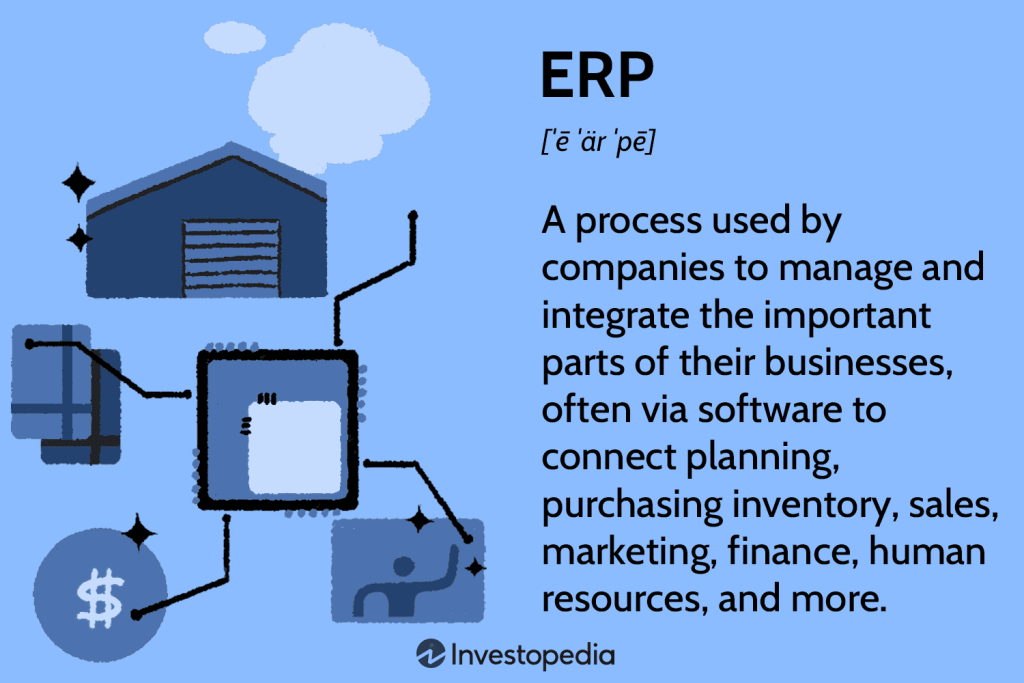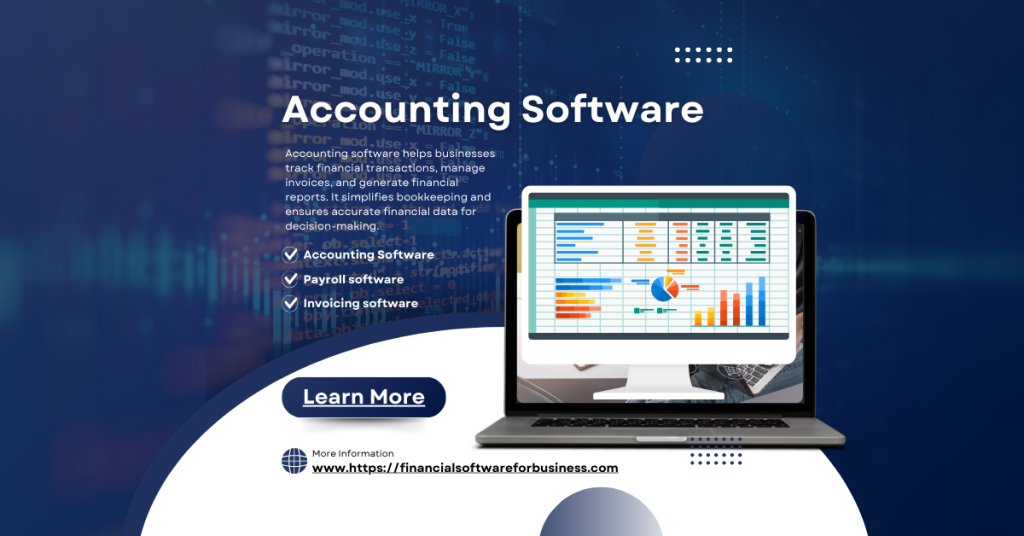ERP software, or Enterprise Resource Planning software, helps businesses manage daily activities. It integrates core processes into a single system for efficiency.
Businesses today face complex challenges. They need tools to streamline operations and boost productivity. ERP software is the answer. It combines various functions like finance, human resources, and supply chain management. This integration allows for real-time data access and improved decision-making.
Companies can automate tasks and reduce errors. ERP software also enhances collaboration among departments. It provides a unified view of business operations. Understanding what ERP software is used for can help you leverage its benefits. Stay tuned as we explore the numerous applications and advantages of ERP software in the business world.
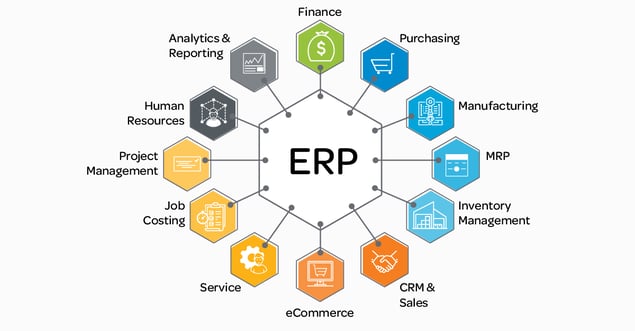
Credit: www.projectline.ca
Introduction To Erp Software
ERP stands for Enterprise Resource Planning. It started in the 1960s. Companies used it to manage inventory. Over time, it grew. It began to include more business tasks. By the 1990s, ERP systems covered many business areas. They managed finance, human resources, and supply chains. Today, ERP software is essential for large businesses. It helps them stay organized and efficient.
ERP software is used in many industries. It helps manage day-to-day activities. These include accounting, procurement, and project management. It also helps with risk management and compliance. Many ERP systems now use cloud technology. This allows businesses to access data from anywhere. ERP software also supports automation. It reduces errors and saves time. Companies can make better decisions using ERP systems. They have access to real-time data. This improves overall productivity and efficiency.
Core Components Of Erp
Finance and accounting modules track money. They help manage cash flow and budgets. Also, they ensure compliance with financial regulations. These tools generate key reports. For example, profit and loss statements.
Human resources modules handle employee data. They manage payroll and benefits. HR tools also track employee performance. Training and development programs are organized through HR. This keeps the workforce productive.
Supply chain management modules oversee product flow. They manage inventory and orders. These tools help with procurement. They ensure products reach customers on time. Efficient supply chains reduce costs.
Key Benefits Of Erp Software
ERP software helps to simplify tasks. It connects different parts of a business. This makes work easier and faster. Employees can share information quickly. There is less need for manual work. It reduces errors. This improves overall efficiency.
With ERP software, data is stored in one place. This means less mistakes. Everyone uses the same data. This makes information more reliable. Decisions made on this data are better. Accurate data leads to better results.
ERP software provides better reports. It helps to analyze data easily. Managers can see trends. They can make informed decisions. Reports are generated quickly. This saves time and effort. Detailed reports help in planning and growth.
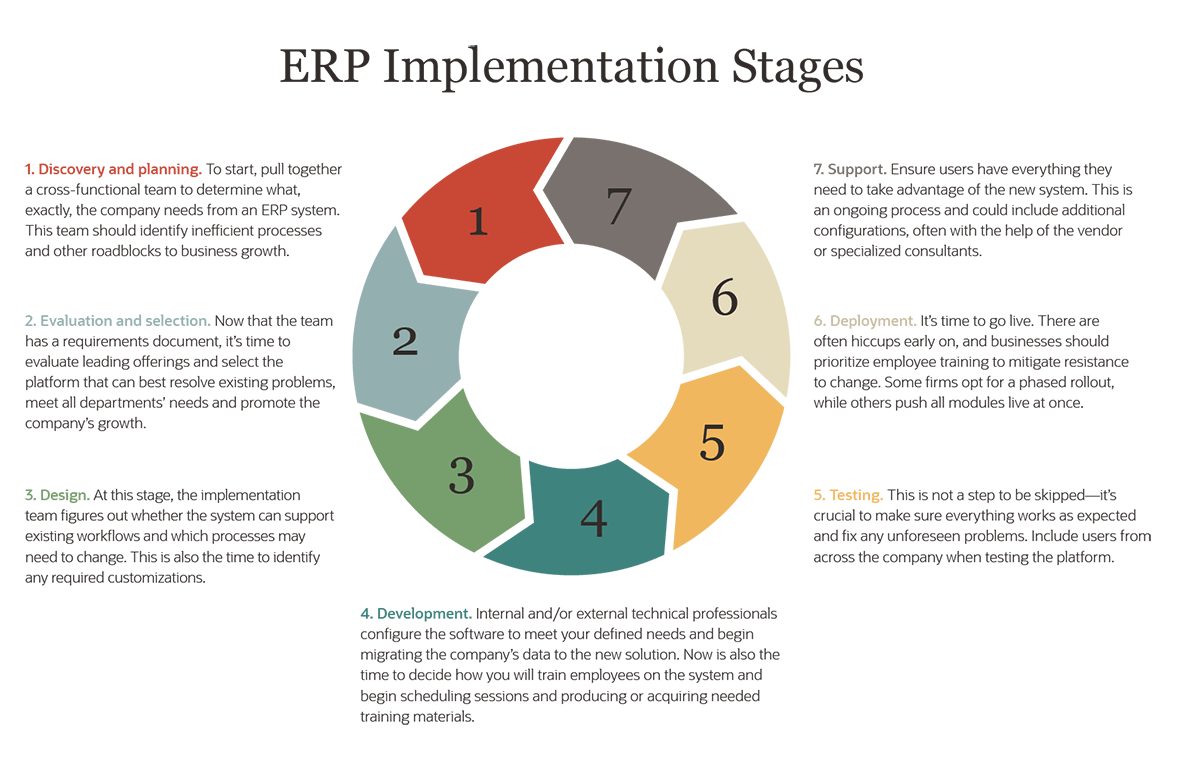
Credit: www.netsuite.com.hk
How Erp Boosts Business Efficiency
ERP software helps in automating routine tasks. This saves a lot of time. Employees can focus on important work. Tasks like invoicing and reporting become automatic. This reduces errors. It makes the work flow smoothly. Companies can see results faster. This leads to better productivity.
ERP systems help manage resources well. They show how resources are used. This includes materials and staff. Businesses can plan better. This avoids wastage. It helps in using everything efficiently. It also tracks usage in real-time. This information is very useful. It helps in making smart decisions.
Erp Integration With Other Systems
ERP software can work well with CRM systems. This means sharing data between sales and operations. It helps in better customer management. Sales teams get up-to-date info about inventory. Operations teams understand customer needs better. This leads to improved customer service.
ERP software can link with e-commerce platforms. This helps in managing orders and inventory. It makes online selling smoother. Orders from the website go straight into the ERP system. Stock levels update in real-time. This prevents overselling. It also helps in tracking shipments. Customers get their items on time.
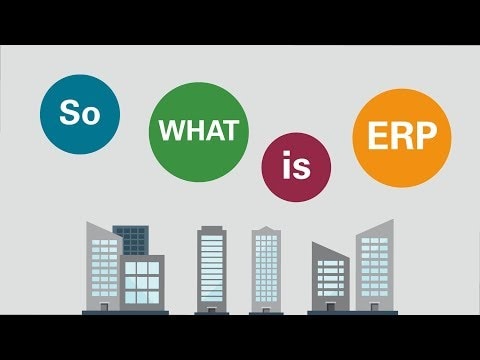
Credit: www.oracle.com
Industries Leveraging Erp
ERP software helps manufacturing companies manage their production. It tracks inventory, orders, and schedules. This ensures everything runs smoothly. Workers can see what needs to be done next. Managers get real-time data to make better decisions. Quality control improves as well. They can find and fix issues quickly.
Healthcare providers use ERP to manage patient records. It helps in scheduling appointments and managing staff. Hospitals track medicine inventory and patient billing. This improves patient care. Doctors access patient history easily. Billing errors reduce, saving money and time. The system also helps in compliance with health regulations.
In the retail industry, ERP software manages sales and inventory. It tracks customer data and order history. Stores can see what items are popular. This helps in stocking the right products. Sales reports are generated quickly. Managers plan promotions based on real data. Customer service improves, leading to higher satisfaction.
Challenges In Erp Implementation
ERP software helps businesses manage resources effectively. Implementing ERP can be challenging due to high costs and complex integration. Proper planning is essential for success.
High Costs
ERP systems can be very expensive. The initial purchase cost is high. Then, there are maintenance and upgrade fees. Small businesses may find these costs hard to manage. Budgeting for ERP can be difficult. Companies must plan carefully. Often, hidden costs arise. For example, consulting fees. Also, costs for hardware and software. These add to the total expense.
Complex Customization
Customizing ERP software can be complex. Every business has unique needs. Off-the-shelf ERP may not fit. Customization is necessary. This process can be time-consuming. It may require experts. Sometimes, it leads to errors. Fixing these errors takes more time. The complexity can be overwhelming. Proper planning is key.
User Training
Users need training to use ERP software well. New systems can be confusing. Training helps users understand the system. It also helps them use it efficiently. Training can be costly. It may also take a lot of time. Without training, users may make mistakes. They may also feel frustrated. Investing in good training is crucial.
Future Trends In Erp Software
ERP software helps businesses manage daily activities, such as accounting, procurement, project management, and supply chain operations. Future trends in ERP software include AI integration and advanced data analytics, improving efficiency and decision-making.
Cloud-based Solutions
ERP systems are moving to the cloud. This means they are online. You can access them from anywhere. This is good for remote work. It also saves space on your computer. Updates happen automatically. This keeps the software current. Costs are lower, too. No need for expensive hardware.
Ai And Machine Learning
AI makes ERP smarter. It can predict trends. It learns from data. This helps in decision-making. It also automates tasks. Less work for people. More accurate results. AI can also improve customer service. Quick responses to queries. Better user experience.
Choosing The Right Erp System
Understanding your business needs is crucial. Identify specific goals and challenges. Know which departments will use the ERP system. Evaluate how the software can integrate with existing tools. Consider scalability for future growth. This helps in making informed decisions.
Comparing vendors involves several steps. Look at features and functionality. Check customer reviews and testimonials. Evaluate the cost of the software. Consider training and support provided by the vendor. This helps in selecting the best fit for your needs.
Conclusion
ERP software simplifies business processes. It boosts productivity and efficiency. Companies can manage resources better. It integrates different departments into one system. Real-time data helps in quick decision-making. ERP reduces errors and saves time. It’s essential for business growth and success.
Investing in ERP software is a smart choice. It helps businesses stay competitive. Embrace ERP for a streamlined operation.
